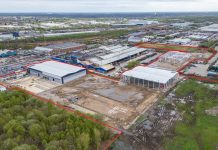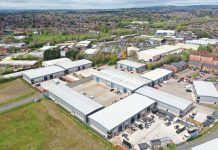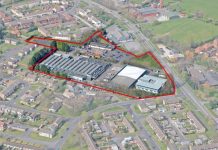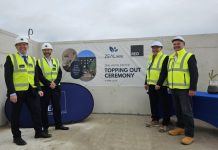Andy Heath, Partner, Office agency at Cushman & Wakefield in Bristol comments:
“As we look ahead to what might be in store for the property sector in 2017, it might be wise to first cast our minds back 12 months and reflect that perhaps the lesson best learned from 2016 is to not be over-confident when making predictions. That said, a noticeable trend from 2016 has been the way markets – not least our own property market in the UK – have adjusted quickly to new political or economic stimulants. Volumes may be down and attitudes to risk adjusted but a willingness to strive for BAU has been the most striking theme.
However, deal volumes are only a short term measure of market health. More relevant are developing and emerging trends, and whether they will continue and perhaps accelerate – in the medium to longer term.
“Amongst these trends and opportunities is Bristol, a city with the chance to become a major force in the UK regional economy over the next few years. With the highest number of people employed in digital tech outside Shoreditch, a vibrant cultural life and voted the best city to lie in the UK by The Times, an improving infrastructure with electrification of the train lines and a new rapid transport system across the city due to open in 2017, it is a city at the forefront of occupiers and investors’ minds. 2017 will also be the year that the construction of the Hinkley Point nuclear power station really gets underway – the largest single construction project in Europe and twice the size of the London Olympics.
“This is not only good for the employer demand of today but provides the flexibility to respond to employer needs in the workplace revolution that is already occurring. Demand though is only one side of the equation and perhaps as importantly we now have the operators, developers and investors that recognise these changing workplace requirements. This combination provides vital flexibility that should underwrite the Bristol story for some time to come.
“We can be confident that whatever Brexit finally looks like, the need for this increased flexibility will continue, as will the growth of other major UK cities as they seize the opportunity to compete more effectively with the capital during this era of rapid change. Capitalising on the Government’s regional infrastructure drive will be critical, as will the need to urgently address the housing shortage in those areas of greatest demand with suitable funding models/structures as well as adequate land supply. Increasing demand for real estate driven returns should see a further maturing of the alternatives sector whilst residential led investment will gain even greater significance.
“Finally, global events will continue to dominate the headlines. I suspect our period in the Brexit limelight will soon pass. Whilst we will still need to deal with the consequences of the Referendum for some years to come, I can see that other unfolding events – Trump; global trade; Italian banks; European elections; the oil price, amongst many others – will each take their turn as the ‘topic of the day’ and possibly on a recurring basis, inevitably creating periods of greater uncertainty, sometimes with local impact and sometimes with regional or global impact. But as the UK has already demonstrated since the Referendum vote in June, it is well-placed to respond quickly to major shocks, principally because it is mature and secure enough to continue attracting substantial business interest that fundamentally strives for BAU.”





















